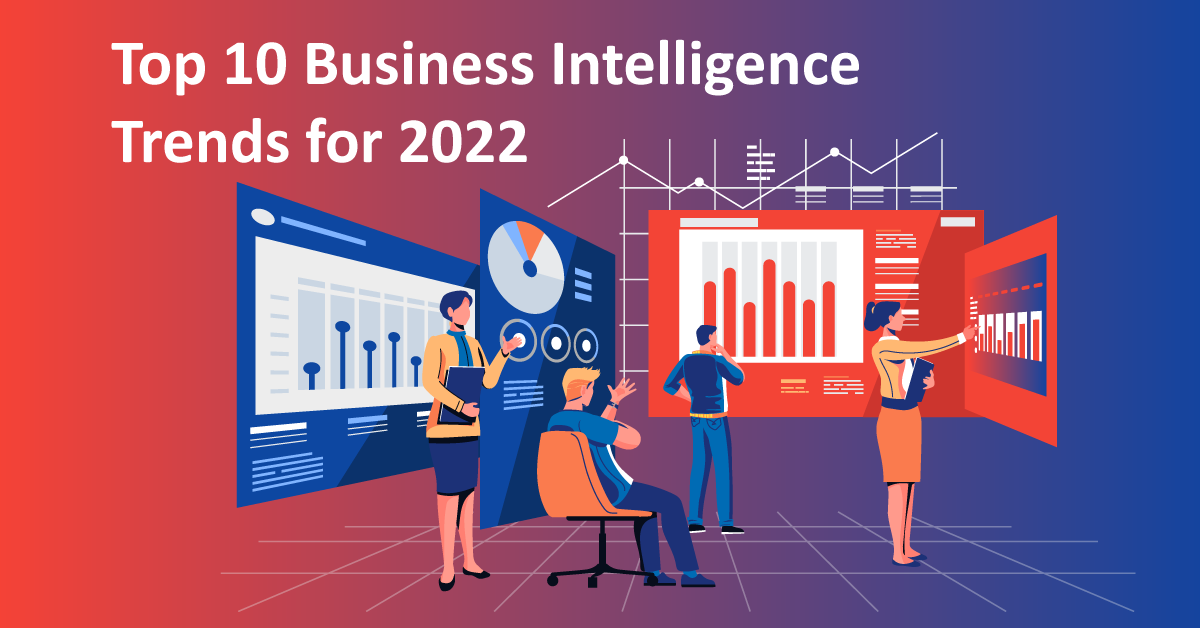Unlocking the Power of Business Intelligence Tools for Your Organization
February 20, 2023

In the modern economy, business intelligence tools are new applications and software that are helping businesses to perform daily task efficiently. Business intelligence tools are software applications that help organizations analyze and visualize their data in order to make better business decisions. These tools have become increasingly popular over the past few years as businesses seek to gain a competitive edge in a data-driven world.
Benefits of Business Intelligence Tools
Improved decision making
Business intelligence tools provide organizations with real-time data and insights that can help them make better decisions. By having access to relevant data, businesses can respond quickly to changing market conditions, identify new opportunities, and improve operational efficiency.
Increased efficiency
Business intelligence tools can automate data collection and analysis, reducing the time and effort required to generate reports and insights. This allows employees to focus on other tasks that require human input, such as interpreting data and making strategic decisions.
Better collaboration
Business intelligence tools allow employees to share data and insights more easily, leading to better collaboration and more informed decision-making. With the ability to access data from multiple sources, teams can work together more effectively to solve problems and achieve goals.
Competitive advantage
By using business intelligence tools to gain insights into customer behavior, market trends, and other factors, businesses can gain a competitive edge over their rivals. By understanding what drives customer behavior, for example, businesses can improve their products and services and increase customer loyalty.
Types of Business Intelligence Tools:
Dashboards
Dashboards provide a visual display of key performance indicators (KPIs) and other metrics that allow users to quickly assess the health of their business. This can include information on sales, revenue, customer satisfaction, and other factors.
Reporting tools
Reporting tools enable users to create and share reports based on their data, with options for filtering, sorting, and formatting. This can include reports on sales, inventory, customer behavior, and other metrics.
Data visualization tools
Data visualization tools create charts, graphs, and other visualizations that make it easier to understand complex data sets. This can include bar charts, pie charts, line charts, and other types of visualizations.
Data mining tools
Data mining tools use algorithms and machine learning to discover patterns and insights in large data sets. This can include identifying customer behavior patterns, predicting future trends, and identifying areas for cost savings.
ETL tools
ETL stands for extract, transform, and load. ETL tools help organizations extract data from multiple sources, transform it into a consistent format, and load it into a data warehouse or other storage solution. This can include data from multiple sources, such as sales data, customer data, and inventory data.
OLAP tools
OLAP stands for online analytical processing. OLAP tools allow users to explore data in a multidimensional way, drilling down into subsets of data to understand relationships and patterns. This can include analyzing customer behavior by location, product, and other factors.
Predictive analytics tools
Predictive analytics tools use statistical and machine learning algorithms to forecast future trends and behaviors based on historical data. This can include predicting future sales trends, identifying areas for cost savings, and identifying new opportunities.
Data governance tools
Data governance tools help organizations manage and control their data, ensuring that it is accurate, consistent, and secure. This can include tools for data quality, data profiling, and data privacy.
Popular Business Intelligence Tools
Tableau
Tableau is a powerful data visualization and business intelligence tool that enables users to easily connect to various data sources, visualize and analyze data, and share insights across their organization.
Power BI
Power BI is a cloud-based business analytics service that allows users to easily connect to a variety of data sources, create interactive visualizations, and share insights across their organization.
QlikView
QlikView is a business intelligence platform that enables users to easily explore and analyze complex data sets, create interactive dashboards and reports, and share insights with others in their organization.
MicroStrategy
MicroStrategy is a business intelligence platform that offers a wide range of features, including data discovery and exploration, mobile analytics, and predictive analytics.
Looker
Looker is a cloud-based business intelligence and analytics platform that enables users to easily connect to various data sources, create custom reports and dashboards, and share insights across their organization.
Domo
Domo is a cloud-based business intelligence platform that offers a wide range of features, including data visualization, data discovery, and predictive analytics.
IBM Cognos Analytics
IBM Cognos Analytics is a business intelligence platform that offers a wide range of features, including reporting, analysis, dashboards, and scorecards.
SAP BusinessObjects
SAP BusinessObjects is a business intelligence platform that offers a wide range of features, including data discovery, reporting, and analysis.
Sisense
Sisense is a business intelligence platform that enables users to easily connect to various data sources, create interactive dashboards and reports, and share insights across their organization.
Yellowfin
Yellowfin is a business intelligence and analytics platform that enables users to easily connect to various data sources, create interactive visualizations and reports, and share insights across their organization.
Bottom line
It’s important to note that the best business intelligence tool for your organization will depend on your specific needs and requirements. It’s recommended to evaluate different tools based on their features, pricing, and ease of use to determine the best fit for your organization.
Business intelligence tools provide organizations with a powerful set of tools for analyzing and visualizing their data. By using these tools to gain insights into customer behavior, market trends, and other factors, businesses can gain a competitive edge and make better decisions. Whether you are a small business owner or a large enterprise, there is a business intelligence tool out there that can help you achieve your goals.











